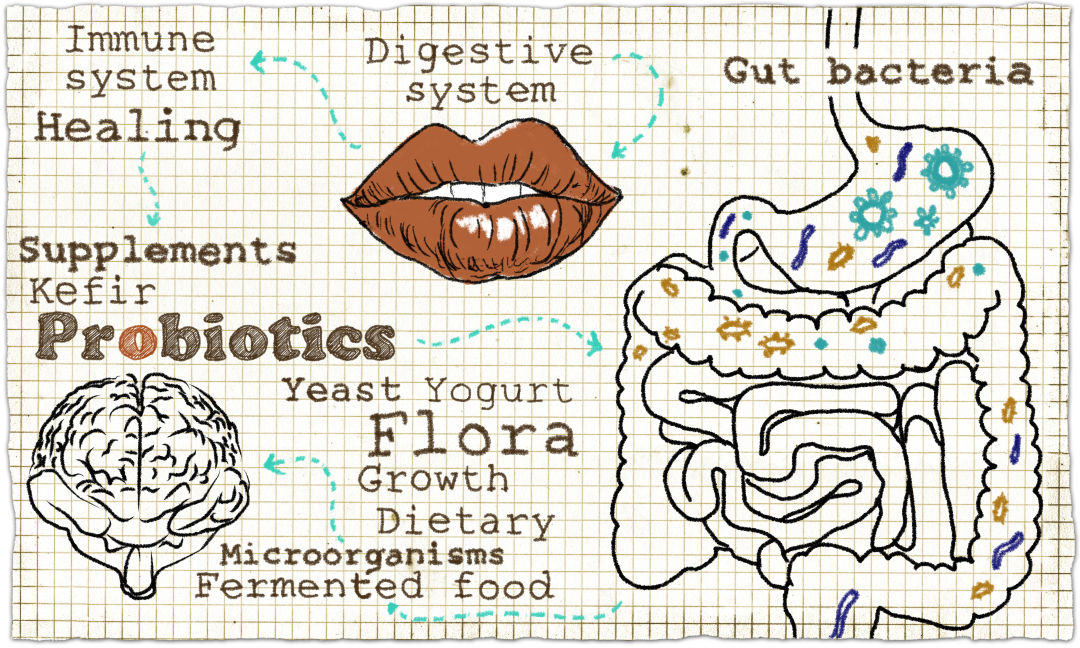A Digestion Survival Guide for Eating Out
Going out to eat is filled with temptations, from appetizer to dessert—and then there’s the booze. But it’s fun, and no one wants to deprive themselves of the joy of socializing and trying all kinds of yummy foods. (Hello, FOMO!)
However, you’re not alone if your tummy starts to ache and grumble after you visit your favorite restaurant or (over)indulge just a little at your best friend’s birthday brunch. If you have inflammatory bowel disease, digestive issues or food intolerances, eating out may feel more like a burden than a good time. But it doesn’t have to if you’re prepared.
We’ve put together this digestive survival guide for eating out to help you feel more at ease and keep your digestion intact.

1. Special occasions don’t mean special outcomes
If you eat spicy foods and often feel indigestion afterward, or know that eating dairy rubs you the wrong way, don’t expect that symptom to magically disappear because you’re out on the town. We often try to lie to ourselves and think that “just this once won’t hurt,” or “how bad can it really make me feel?” The truth is, you need to listen to your body, understand your symptoms and respect your unique digestive system. It’s a hard pill to swallow, but once you get on board with understanding your intolerances you will enjoy eating out much more.

2.Get a grip on your blood sugar
Before you head out to your dinner reservation, have a little healthy snack so you aren’t starving by the time you arrive. Something as simple as a handful of protein-rich almonds will work wonders. When your stomach isn’t growling for food, you will be less likely to over-order and eat everything in sight. When we gorge on food, especially sugar or high-glycemic carbohydrates, we experience a rapid influx of blood sugar. The overabundance of glucose can leave us fatigued and irritable from the roller-coaster effect it has on our energy levels. If you have trouble managing your blood sugar, there are always supplements to the rescue. Visit your local health food store and ask the clerk to point you in the direction of glucose management. Once there you’ll find bottles of alpha-lipoic acid, fenugreek, chromium, gymnema sylvestre and more. There will even be a supplement that simply says “Blood Sugar Balance,” or “Glucose Control.” Any of them can have an effect on normalizing your blood sugar.

3. Chew every bite
As silly and obvious as it sounds, this step is really important. Not just for eating out, but every time you’re sitting down for a meal. Chewing assists in thoroughly breaking down your food into manageable particles. It’s something we overlook and take for granted often. We don’t think about how the simple act of chewing triggers the digestive processes from the very beginning in a sequence of events. A simple rule of thumb, take at least 20 minutes to consume your food. You’re in no rush anyway, right?

4. Embrace enzymes
When you don’t chew your food properly, your body could respond poorly. Digestive enzymes can help with that. It is still important to properly chew your food, though! Digestive enzymes come in handy when eating cooked or processed foods to help your body break down meals, so we can soak up the nutrients. The body naturally produces digestive enzymes, but sometimes it doesn’t make enough. Some people may have a deficiency of certain types of enzyme. This is why food intolerances occur, slowing the digestion process and leaving you with uncomfortable symptoms like bloating, gas or diarrhea. Different brands may vary on when to take a digestive enzyme, but it’s always with your food—maybe before, during or after, but always with food. The result can be improved regularity, less digestive discomfort and better assimilation of vital nutrients. Supplementing with metabolic enzymes may provide extra support for your cardiovascular and immune systems and your healthy muscle, tissue and joint function, too.

5. Probiotics, party of 50 million
Beneficial bacteria like probiotics help us digest our food, manufacture vitamins and boost our immune system. If you’re familiar with probiotics and already take one daily, try taking extra to keep your digestion on track. Doses of probiotics range from 10 million as a maintenance dose to more healing dosages between 50-100 million live cultures. So next time you eat out, double up on the probiotics.

So now that you are fully equipped with new knowledge, you can beat the stress of eating out knowing you’re managing your digestion in a healthy way. Relax, take time with your friends and family and bon appetit!
Richard’s Foodporium
Come visit us at one of our 13 locations!
For more information please visit our website
